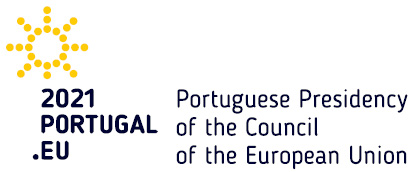After 13 years in a “temporary” camp, 97 families moved into new homes and became part of the community in northern Kosovo, as a result of EU assistance.
The Roma, Ashkali and Egyptian families had been displaced after the conflict in Kosovo, and had been living in discarded shipping containers and disused military sheds on lead-contaminated land. An EU project made it possible to obtain new sites just outside Mitrovica, and to build houses that the families could call their own – 92 in the Roma Mahala in Southern Mitrovica, and five in Northern Mitrovica.
The Prime Minister’s office and the Ministry for Communities and Returns helped arrange changes to property law that allowed a lease of 99 years. Because of this, the families could settle with a sense of ownership and permanence – a major achievement in a region where ethnic tensions remain high.
MORE THAN HOUSING
The families obtained more than housing. The services provided helped improve the residents’ health and offered a healthier living environment. Local medical staff were trained to analyse and treat lead levels in children’s blood, and these levels have since declined to acceptable ones. “All of the children who lived in the camps had high levels of blood lead content, and were all treated successfully,” according to the head of the medical centre responsible for family care. Families were also given access to basic social services – education, civil registration and legal assistance.
The project – a reflection of the EU’s commitment to democracy and human rights – was carried out in a way that ensured that the return of displaced persons was a sustainable one. This meant building sustainable communities as well as accommodation, providing opportunities for employment, and for peaceful reintegration with the existing population in the resettlement area.

The provision of school supplies and assistance in obtaining identity cards and citizenship papers helped them integrate into society. “The support in terms of school equipment, school lunches and clothing has enabled children not to drop out of school,” says one of the leaders ofthe Roma, Ashkali and Egyptian communities. Vocational training has allowed the new residents to find work, or to start their own businesses in hairdressing, tailoring and metal processing with the help of enterprise grants from the project.
Local families also experienced economic benefits through parallel initiatives – in addition to the work that many of them found in the construction sector while the site was being prepared and the new housing was built. At the same time, local government capacity for reintegration was improved, offering a lead to long-term peaceful reintegration of other displaced families from ethnic minorities. Authorities had struggled for a long time to resettle the community, in the face of continuing divisions resulting from the war. This is why community development activities were central to the project, to mitigate the potential for conflict, and to promote reconciliation.
Partners:
Mercy Corps
Total cost in €: 5 million
EU Contribution in €: 5 million (100%)
Start date:
February 2010
End date:
December 2012
Results:
New housing away from contaminated land; more regular education for children; improved living standards; job opportunities; registration as citizens; new links with the wider Mitrovica community and municipal authorities
Techniques:
Negotiation with local authorities to obtain building land; construction; social and medical support; vocational training; enterprise grants; cooperation with local authorities in reintegration
PROJECT DETAILS –
The European Union –Mitrovica Roma, Ashkali and Egyptian Support Initiative (EU-MRSI) long-term peaceful reintegration of other displaced families from ethnic minorities. Authorities had struggled for a long time to resettle the community, in the face of continuing divisions resulting from the war. This is why community development activities were central to the project, to mitigate the potential for conflict, and to promote reconciliation.






